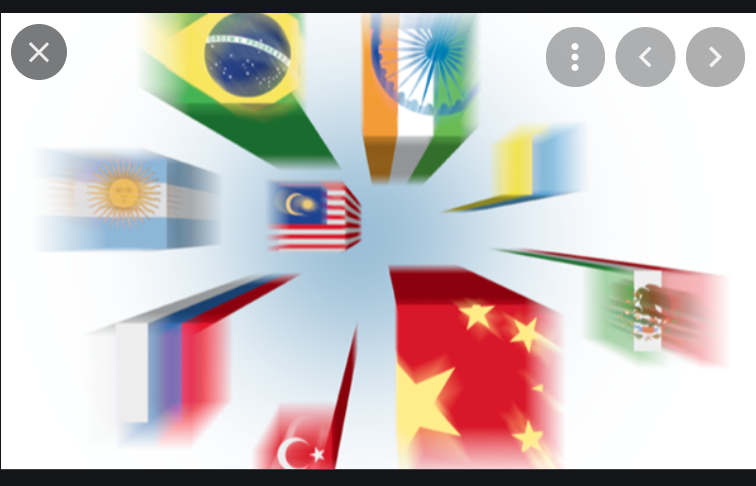S&P Global Ratings trimmed its growth forecast for emerging economies to 4% in 2022, saying developing nations are on a “road full of hazards” as the Russia-Ukraine conflict heightens ongoing inflationary pressures and tighter financial conditions, reported Reuters Friday morning.
S&P forecast Turkey’s GDP growth at 2.4% for 2022, in line with domestic forecasts. Previously, EBRD and World Bank had reduced Turkey GDP forecasts.
Three Scourges of Turkish Economy: Unemployment, Inflation, and External Deficit | Real Turkey
The rating agency forecasts the combined gross domestic product of emerging markets will grow by 4.3% GDP next year, it said in a report released on Thursday. It had previously forecast a 4.8% expansion this year. China’s uncertain growth trajectory was also raising concerns about future economic performance of developing markets.
Economies in Europe, the Middle East and Africa (EMEA) face some of the biggest pressures, especially on the inflation side due to a combination of higher commodity prices and logistics costs continuing to add pressure on consumer prices.
“Aside from shock to Russia’s economy, the bulk of the downward revision to (the) growth forecast is for EM EMEA, while the impact on growth is more contained elsewhere,” credit analyst Jose Perez Gorozpe said in the note to clients.
“EM sovereigns are struggling to deal with the pandemic costs, managing inflation, and meeting protracted social demands – a balance between fiscal consolidation and social strife.”
Russia’s economy is forecast in the report to shrink 8.5% in 2022. Turkey’s GDP is set to grow 2.4%.
While financing conditions could weaken “rapidly” for developing nations following the United States embarking on tightening monetary policy, S&P said some countries were more resilient than others.
Latin American commodities exporters have seen significant capital inflows since Russia’s invasion of Ukraine, as has South Africa, a key producer of platinum group metals and iron ore.
The downside for the Latin American region is that March inflation was higher than expected due to rising food and energy prices.
The risk trend of the prevalence of COVID-19 across emerging markets economies is improving across the board, with China as an exception.
The world’s second-largest economy could compromise its growth with its harsh lockdowns in order to meet its “zero-Covid” policy. S&P projects 4.9% GDP growth in China for 2022 and 5% for 2023.
Follow our English language YouTube videos @ REAL TURKEY:
https://www.youtube.com/channel/UCKpFJB4GFiNkhmpVZQ_d9Rg
And content at Twitter: @AtillaEng
